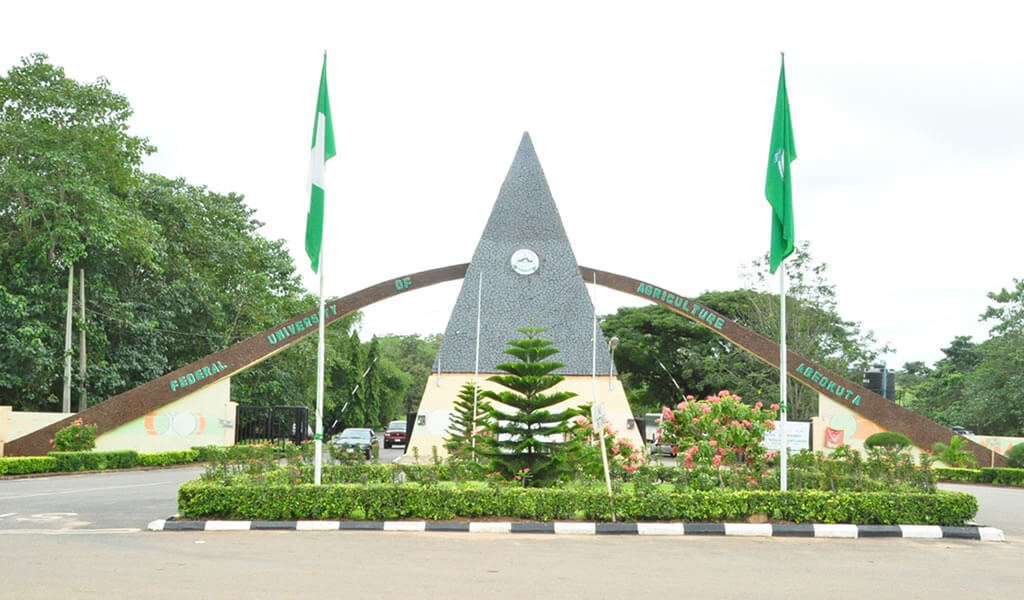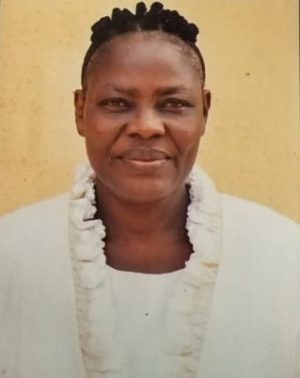PREAMBLE /BRIEF HISTORY
The Department of General Studies (GNS) was established in 1988 at the inception of the University of Agriculture, Abeokuta (UNAAB). In 1999, the University Senate vide the Senate Meeting of February 18, approved the establishment of a Centre for General Studies (CGS). At its meeting in April 2006, the Senate approved (in principle) that the Department be converted to an Institute to avoid restrictions and limitations placed on the staff in areas of research and postgraduate work. This led to a reconsideration of the proposal at the November 2006 meeting when it was approved that the Department be changed to the Department of Communication and General Studies (CGNS) and be allowed to run its Postgraduate Diploma and Master programmes in Communication Studies.
The Senate at its 176th meeting held on January 13, 2009, approved the establishment of the Institute of Communication and General Studies. The transformation of the Department of Communication and General Studies (CGNS) to an Institute was reconsidered at the 186th meeting of the Senate held on February 16, 2012.
Moreover, the Governing Council at its Special Meeting held on Tuesday, 20th August 2024 considered and approved the request for the upgrade of the Communication and General Studies (CGNS) Department to the Institute of Communication and General Studies (ICGNS).
1.2 FUNCTIONS
- The Institute of Communication and General Studies is a learning centre where students are exposed to a wide range of research, scholarship and innovation to advance their intellectual and human resource capacity.
- Students are groomed in holistic knowledge, morals, critical thinking and strong oral and written communication skills to become global citizens worthy in learning and character.
- The Institute is in full support of the University’s general education curricula, promoting global engagement and ethical leadership for a just and stable society.
- These functions shall be achieved in collaboration with various disciplines, departments, and units across the University, as well as through partnerships with local, regional and global communities.
1.3. VISION AND MISSION
- To become a leading centre in a global, excellent knowledge-generation hub to promote human development and sustainability.
- To offer essential intellectual and interactive learning services to broaden students’ knowledge beyond their immediate professional horizons in the 21st
- To educate students on the socio-cultural peculiarities of Nigerian society, especially the prevailing customs, values, and superstitions, to equip them to become active citizens and leaders pursuing the transformation and sustainable development of the nation.
- To promote excellence, integrity, resilience, industry, service to humanity and knowledge for global relevance.
- To provide well-rounded, morally and intellectually capable graduates with the vision for entrepreneurial and communication skills development in an environment of peace and social cohesiveness.
- The Institute will provide a variety of courses, knowledge-based services and support in the promotion of learning in an environmentally friendly society.
1.4. PHILOSOPHY AND OBJECTIVES
The principal mandate of the Institute shall be to ensure that the Federal University of Agriculture, Abeokuta (FUNAAB) continues to offer and maintain the highest level of academic excellence in a competitive national and international higher education environment.
Above all, the Institute is saddled with a major role of contributing towards the realisation of the vison and mission of FUNAAB. Accordingly, the Institute shall promote excellence in education and facilitate the overall development of staff and students of the University in order to advance the intellectual and human resource capacity of the country and the international world. To this end, the Institute will, in line with the objectives of the University, organise extension services and outreach programmes for technology transfer and work by:
- Running and coordinating short-term certificate, associate and proficiency courses, seminars, conferences, and workshops for staff; and other stakeholders in the immediate environment in Communication and Language skills courses.
- Provide expert advice and analysis on communication, language and social issues for staff, students and stakeholders in the catchment areas.
- Encouraging staff and students to write in the area of creative writing.
- Operating a language laboratory with writing and oral communication clinics. The writing clinic will focus on helping undergraduates and postgraduate students with writing skills in their courses, projects and dissertations. The oral communication clinic shall be responsible for organising speech therapy for staff, students and others in the catchment areas.
- Providing and promoting awareness and training on security, citizenship and leadership issues, peace and conflict resolutions, and problems facing our communities and the nation at large.
- Widening the academic experiences of students through drama presentations. The University Theatre Group shall be placed directly under the Institute.
- Establishing a small-scale museum of Natural History.
Specifically, the Institute shall be responsible for offering current courses in General Studies which are generally unrelated to the courses characterising each degree programme to broaden the knowledge horizons of students. The courses assembled for General Studies include: Communication Skills, Writing and Literary Appreciation, Nigerian History and Culture Sociology, Politics, Philosophy (Logic) and Psychology.
The Institute shall teach these multi-disciplinary and general courses to all first and second-year students in the University. In addition, the Institute shall continue to run the postgraduate programmes across Diploma, Masters and Doctor of Philosophy levels while seeking more opportunities to establish new courses for relevance in higher education and the global environment.
- INSTITUTE PROGRAMME UNITS
The operational structure of the Institute is anchored under the following units:
- Institute Secretariat where daily administrative and academic activities and functions are coordinated. It is headed by the Director.
- Programme Units comprise: i. Communication and Language Studies Programme (CLS) ii. Peace and Development Studies (PDS) and iii. Philosophy and Leadership Studies (PLS). Activities of each programme unit, are coordinated by the programme leader appointed to oversee the unit.
1.6. INSTITUTE ACADEMIC AND PROFESSIONAL PROGRAMMES
The Institute anchors the following academic programmes under its domain:
NOTE: General Studies’ courses cut across all programme units of the Institute providing services for the entire University.
At the postgraduate level, there are varieties of courses taught that are anchored under the programme units of the Institute:
- Communication and Language Studies Programme:
- General Studies courses for 100 and 200 levels. These are University-wide courses that must be registered for and passed before graduation.
- Proficiency course in English Language
- Certificate in Public Speaking
- Certificate in Intensive French Enrichment course
- Postgraduate Diploma in Communication Studies
- Postgraduate Diploma in Library Studies
- Master in Library Information Science
- Master in Communication Studies
- Master in Communication Development
- D.in Communication Studies/ Communication Development
- Peace and Development Studies Programme:
- Postgraduate Diploma in Peace and Strategic Studies
- Postgraduate Diploma in Security and Intelligence Studies
- Master in Peace and Strategic Studies
- Master in Security and Intelligence Studies
- Philosophy and Leadership Studies Programme:
- Postgraduate Diploma in Professional Ethics
- Master in Professional and Applied Ethics


